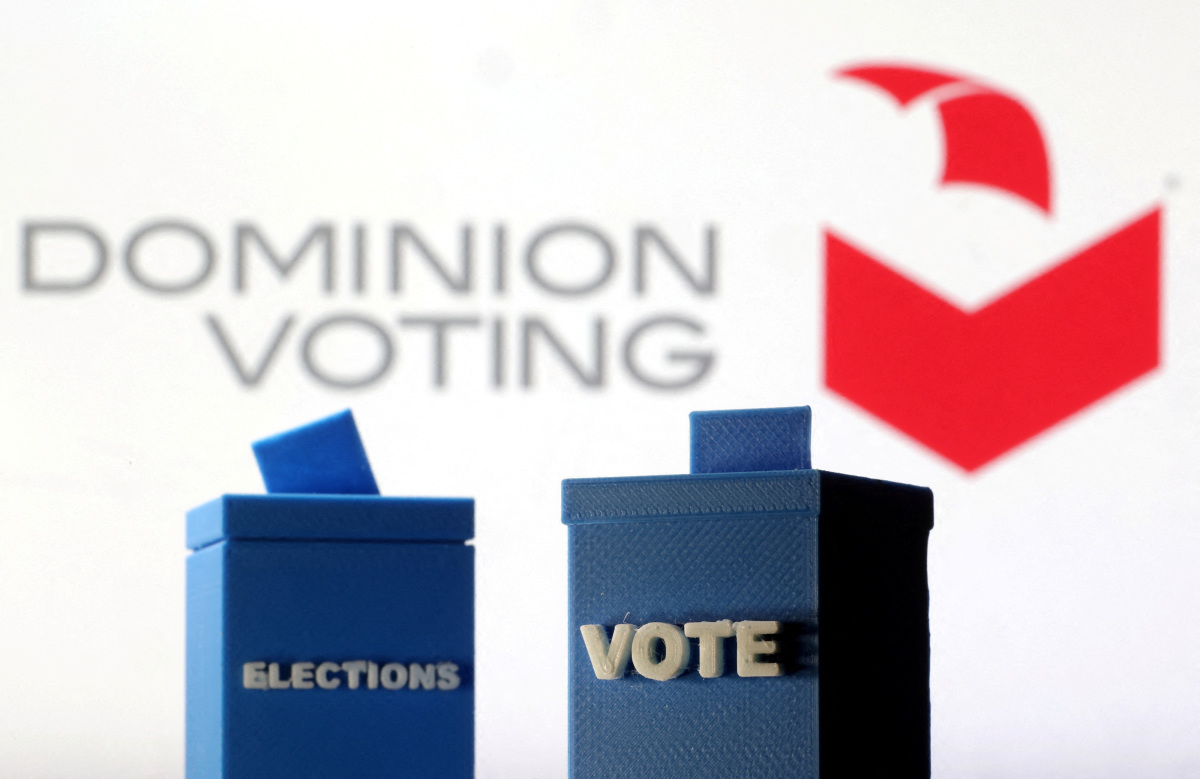Reuters
The eye-popping $787.5 million settlement Fox made to resolve the Dominion Voting Systems defamation lawsuit left unanswered one of the biggest questions in the case: was the Denver-based voting-technology company owed as much as it claimed?
Dominion in its lawsuit said Fox News and parent company Fox Corp ruined its business and should pay $1.6 billion for airing false claims that its voting machines were used to rig the 2020 U.S. election against Republican then-President Donald Trump and in favor of Democrat Joe Biden.
Fox had claimed the figure was impossible to square with its own assessment that Dominion was doing fine as a business and continued to post strong revenues.
But Fox’s decision on Tuesday to settle the lawsuit averted a trial that may have clarified Dominion’s actual value and its damages model, which Fox had called untethered from reality and based on fanciful growth projections.
Private equity firm Staple Street Capital valued Dominion at $80 million when it purchased a controlling stake in it in 2018. The Fox settlement was nearly 10 times that amount and far outstripped the $226 million average of four pre-election valuations cited in Fox’s court papers. Dominion has said those estimates were either flawed, based on incomplete information or extremely conservative estimates.
Dominion on Thursday declined to comment on the state of its business. It previously disputed Fox’s assertions about its financial health and defended its damages model as based upon industry standard accounting methods.
Damages disputes are expected in six other defamation lawsuits Dominion is pursuing, seeking a combined $8.7 billion in damages, also over the election-rigging falsehoods. Cases against right-wing media outlets One America News Network and Newsmax, as well Overstock.com founder Patrick Byrne, ask for the same $1.6 billion that Dominion had sought from Fox. Cases against former Trump attorneys Rudy Giuliani and Sidney Powell and conservative businessman Mike Lindell seek $1.3 billion apiece.
Dominion’s damages claim in the Fox case was based upon a report it commissioned from an accounting expert, half of which remains under seal. Dominion’s overall value in December 2020 would have been roughly $741 million had it not been for the damage caused by Fox’s defamatory actions, or roughly 10 times its 2018 value, the report found. It also found that Dominion was forced to abandon growth opportunities worth roughly $643 million.
Fox asserted that such growth would be virtually impossible for any business, particularly in the highly regulated and competitive U.S. voting-technology industry. Dominion also does business in Canada and other countries.
It is difficult to place a dollar value on the U.S. voting-machine industry because Dominion and its competitors all are privately held. A 2017 report by the University of Pennsylvania’s Wharton School estimated the industry brought in roughly $300 million in annual revenues.
LOST CLIENTS
Fox has said Dominion’s model rested on erroneous assumptions, including that it was hemorrhaging business and was on track to lose all its customers by 2031. While Dominion’s report cites dozens of lost clients due to Fox’s coverage, the company still has landed recent contract renewals including in California’s Republican-majority Kern County.
Dominion has not publicly stated its number of clients, but a report commissioned by National Public Radio and published last week found that its machines will be used in 1,861 U.S. jurisdictions in 2024, an increase of 700 from 2020. The report noted, however, that there will be a net loss in total voters using Dominion machines in coming elections.
According to Fox’s court filings, Dominion’s damages report includes future annual earnings projections as much as 240% higher than the figures Dominion offered its lender in September 2020 – two months before the election – when it predicted revenues ranging from $70 to $85 million over the next four years.
Dominion countered that its projections to lenders and investors were “extremely conservative,” which it said is a standard practice in the industry because private equity funds need to manage investor expectations.
If it wins the coming trials without settlements, Dominion could pursue punitive damages in any amount a jury sees fit.
Dominion is unlikely to collect all the money it seeks in damages. But if ultimately it gets as much as it received from Fox, its investors would reap extraordinary returns.
A former Staple Street employee’s text to an associate at the firm, cited in Fox’s court papers, would prove prescient: “Would be pretty unreal if you guys like 20x’ed (multiplied by 20) your Dominion investment with these lawsuits.”







